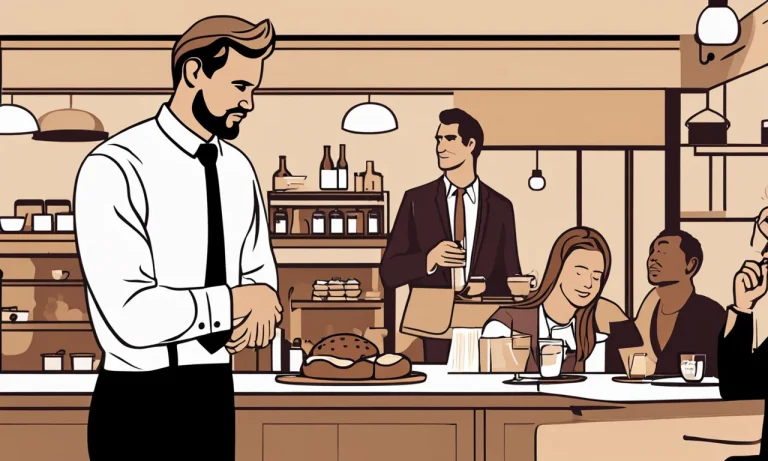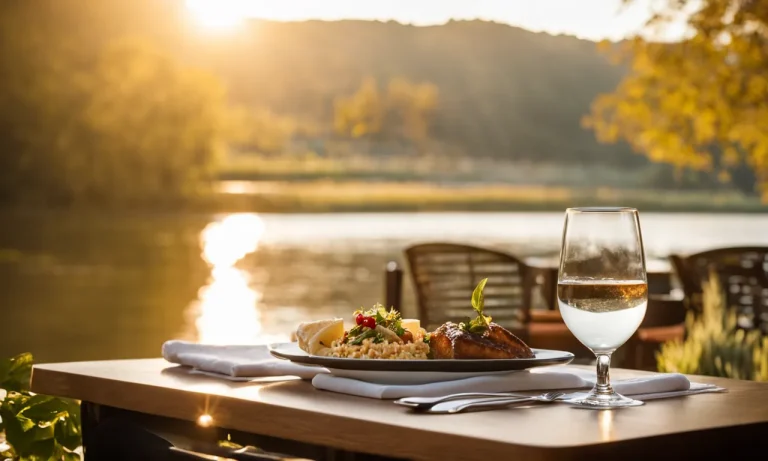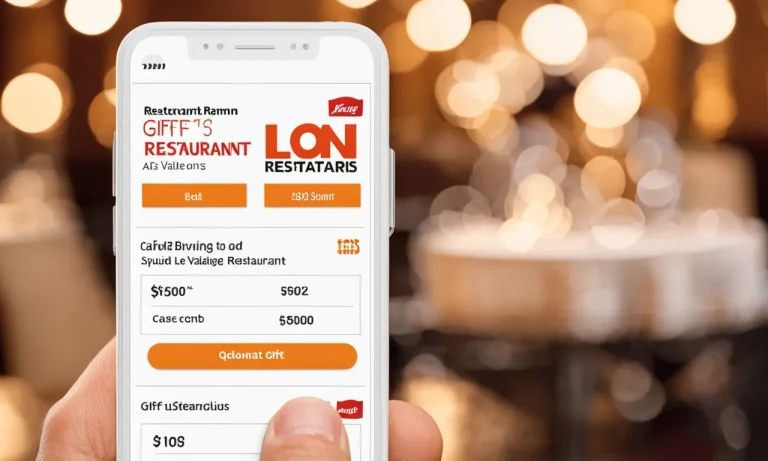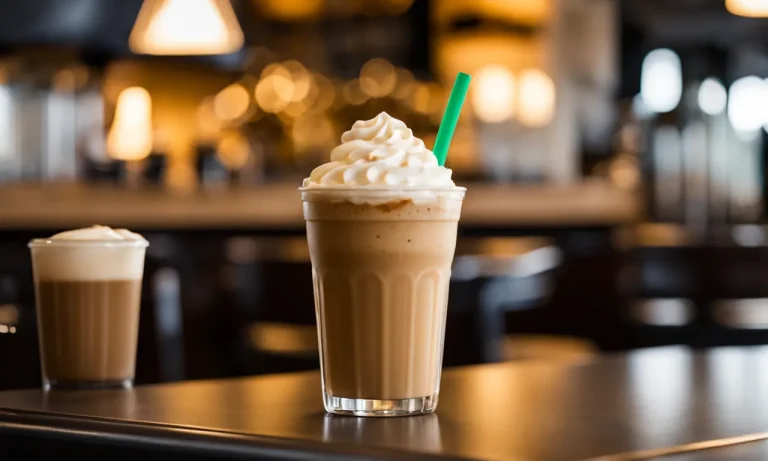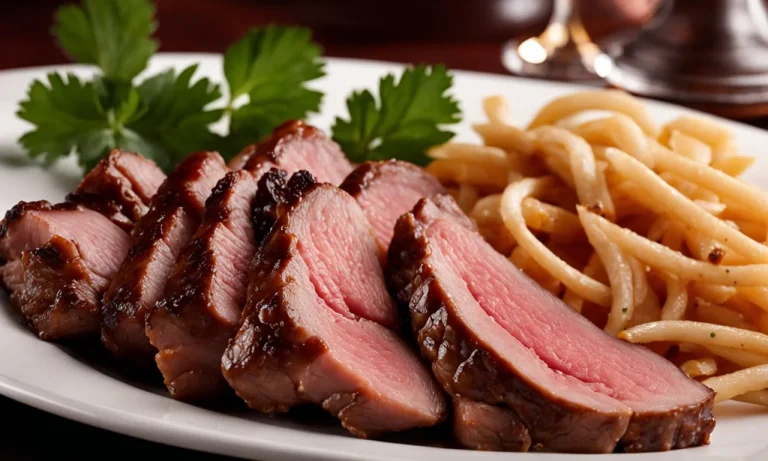Having your card declined at a restaurant can be embarrassing and inconvenient. But what actually happens when your card is rejected, and what should you do? This comprehensive guide will walk you through the entire process step-by-step.
If you’re short on time, here’s a quick answer: The server will inform you that your card was declined. You can offer another form of payment or ask them to run the card again. If it declines again, you’ll need to pay with cash or another card.
The restaurant may ask for an alternate card upfront next time.
In this detailed guide, we’ll cover what causes your card to be declined, the typical process when it happens, how to handle it gracefully, and tips to avoid it happening again.
What Causes a Credit or Debit Card to Be Declined?
Having your card declined at a restaurant can be an embarrassing and frustrating experience. Understanding the possible reasons for a declined card can help you avoid such situations in the future. Here are some common causes for a credit or debit card to be declined:
Insufficient funds
One of the most common reasons for a card to be declined is insufficient funds in the account linked to the card. If you don’t have enough money in your account to cover the cost of your purchase, your card will be declined.
It’s important to keep track of your available balance to avoid this situation. Regularly checking your account balance and budgeting wisely can help prevent this issue.
Fraud prevention block
Banks and credit card companies have sophisticated fraud detection systems in place to protect your account. Sometimes, these systems may mistakenly flag a legitimate transaction as suspicious and block your card.
This can happen if you’re making a large purchase or if the transaction takes place in a different location than usual. If you suspect a fraud prevention block, contact your card issuer to resolve the issue.
Expired card
If your card has expired, it will no longer be valid for use. Cards typically have an expiration date printed on them, and once that date passes, the card will be declined. It’s important to regularly check the expiration date on your card and request a replacement before it expires.
Most card issuers automatically send you a new card before the old one expires, but it’s always a good idea to double-check.
Card issuer system outage
Sometimes, the problem may not be with your card or account but with the card issuer’s system. If the card issuer’s system is experiencing technical difficulties or undergoing maintenance, it can result in your card being declined.
In such cases, the best thing you can do is wait for the issue to be resolved. You can contact your card issuer to confirm if there is a system outage affecting your card.
It’s important to note that these are just some of the common causes for a declined card at a restaurant. Other reasons, such as an incorrect PIN, a damaged card, or a temporary hold on your account, can also lead to a card decline.
If you frequently experience card declines, it may be worth contacting your card issuer to investigate the issue further.
The Step-by-Step Process When Your Card is Declined
Server informs you of declined card
Picture this: you’re enjoying a delicious meal at your favorite restaurant when the server brings you the check. As you hand over your credit card with a smile, the server looks apologetic and informs you that your card has been declined.
It can be an embarrassing and potentially stressful situation, but fear not, there is a step-by-step process to follow when this happens.
You can try running the card again
Before panicking and assuming the worst, ask the server if you can give it another try. Sometimes, a technical glitch or a temporary issue with the card’s network connection can cause the decline. By attempting to run the card again, you may be able to resolve the problem and proceed with the payment smoothly.
Offer another form of payment
If the second attempt also results in a decline, it’s time to consider alternative payment options. You can offer to pay with cash if you have enough on hand or use a different credit or debit card. Most restaurants accept multiple forms of payment, so you shouldn’t have any trouble finding an alternative that works for both you and the establishment.
Restaurant may ask for alternative card upfront next visit
In some cases, if your card is declined at a restaurant, the establishment may request that you provide an alternative card upfront during your next visit. This is to ensure that the payment can be processed smoothly without any inconvenience to you or the restaurant.
It’s a proactive measure that can help avoid future issues and maintain a positive customer experience.
Remember, a declined card at a restaurant is not the end of the world. It happens to the best of us, and most restaurants have encountered this situation before. By following the step-by-step process and maintaining a calm attitude, you can navigate this situation with ease and enjoy the rest of your dining experience.
How to Handle the Situation Gracefully
It can be quite embarrassing and frustrating when your card declines at a restaurant. However, it is important to handle the situation gracefully to avoid any further discomfort or embarrassment. Here are some tips on how to navigate this situation with poise:
Stay calm and don’t panic
First and foremost, it is crucial to remain calm and composed. Getting flustered or upset will only make the situation more awkward. Take a deep breath and remember that these things happen to everyone at some point. Your reaction will set the tone for how others perceive the situation.
Be polite and apologize for the inconvenience
Apologizing for the inconvenience caused by the declined card shows that you take responsibility for the situation. Politely explain to the server or staff that your card has been declined and express your apologies for any inconvenience caused.
Remember, they deal with these situations regularly and are likely to be understanding.
Quietly ask those with you if they can cover the bill
If you are dining with friends or family, discreetly ask if anyone is able to cover the bill temporarily. It is important to approach this situation tactfully and respectfully. Your companions may be willing to help, especially if they have faced similar situations in the past.
Offer to leave collateral like ID and return to pay later
If you are unable to find someone to cover the bill, you can offer to leave collateral, such as your ID or another valuable item, and return later to settle the payment. This shows your sincerity and commitment to paying for your meal.
However, make sure to keep your promise and return to settle the bill as soon as possible.
Remember, the key is to handle the situation with grace and humility. By staying calm, being polite, and offering solutions, you can minimize any potential embarrassment and maintain a positive dining experience.
Tips to Avoid Having Your Card Declined
Having your card declined at a restaurant can be embarrassing and inconvenient. To prevent this from happening, here are some helpful tips:
Monitor your account balance and spending
One of the main reasons cards get declined is due to insufficient funds. To avoid this, it’s important to regularly monitor your account balance and keep track of your spending. By knowing how much money you have available, you can ensure that you have enough funds to cover your restaurant bill.
Notify your bank before travel or large purchases
If you’re planning to travel or make a large purchase, it’s a good idea to notify your bank in advance. Banks often have fraud protection measures in place that may flag unusual transactions, such as those made in a different location or for a significant amount.
By informing your bank beforehand, you can avoid any unnecessary card declines.
Make sure your card hasn’t expired
Expired cards can lead to declined transactions. It’s easy to overlook the expiration date on your card, especially if you rarely use it. To avoid any potential issues, check the expiration date on your card periodically and request a replacement if needed.
Most banks automatically send you a new card before your current one expires, but it’s always good to double-check.
Have a backup payment method on hand
Even if you take all the necessary precautions, there’s always a chance that your card could still get declined. To be prepared for such situations, it’s advisable to have a backup payment method on hand. This could be a different credit or debit card, or even some cash.
Having an alternative option will ensure that you can still pay for your meal without any hassle.
By following these tips, you can greatly reduce the chances of experiencing a declined card at a restaurant. Remember to always stay proactive and keep an eye on your account to maintain smooth and hassle-free transactions.
Conclusion
Having your card declined can happen to anyone and is nothing to be ashamed of. Following the tips above will help you handle the situation smoothly and with grace. The most important things are staying calm, being polite, and offering an alternate form of payment.
With the right preparation, you can often prevent the scenario altogether. But if it does happen, now you know the step-by-step process of what to expect.

